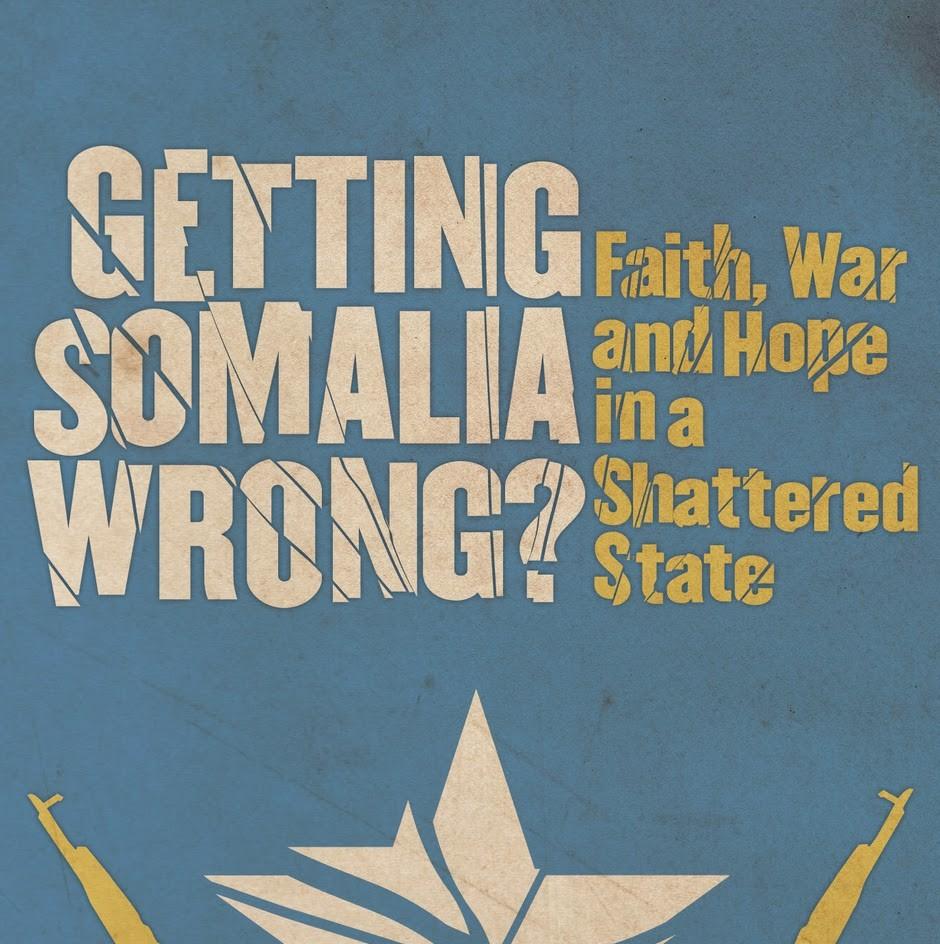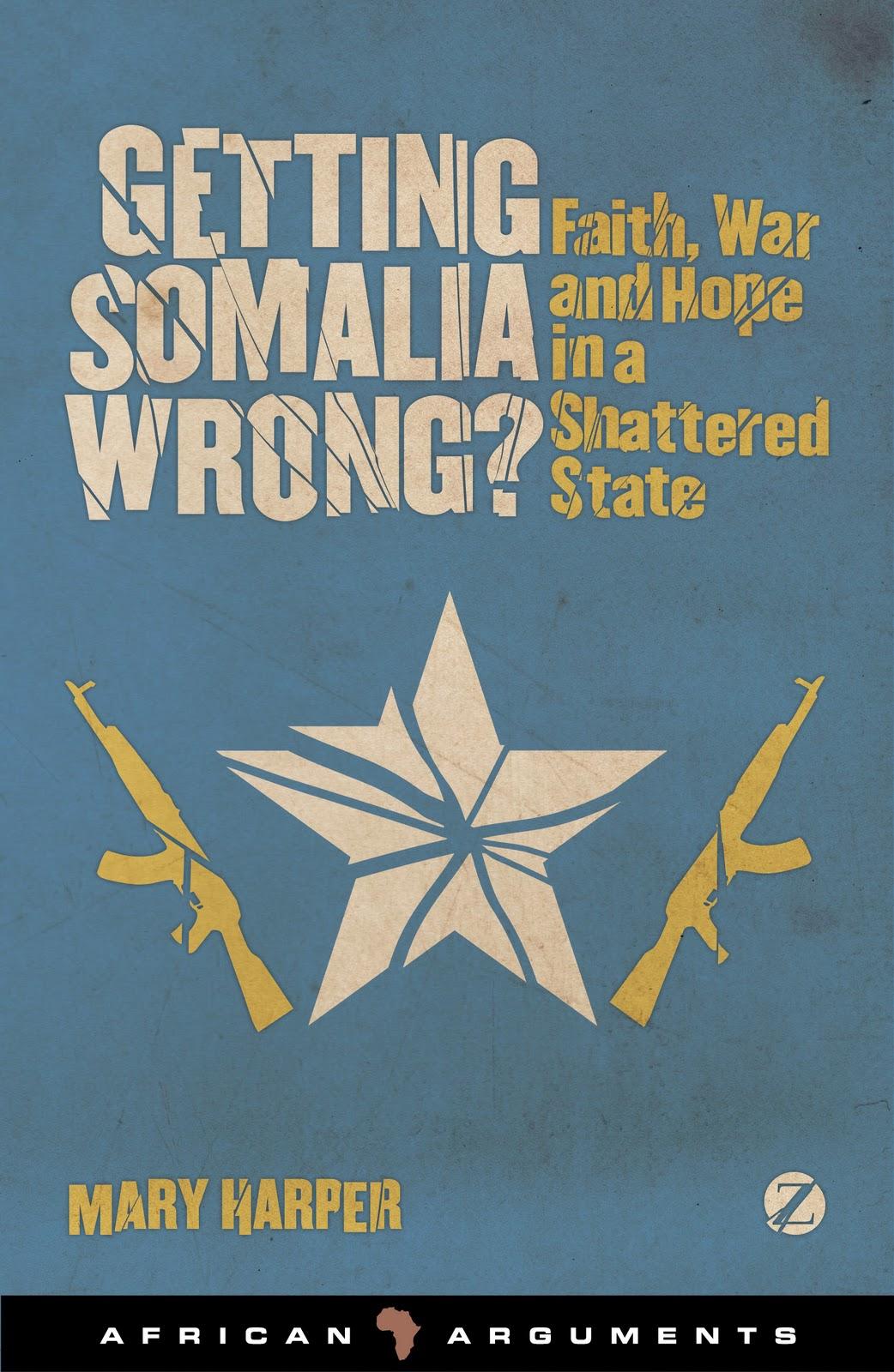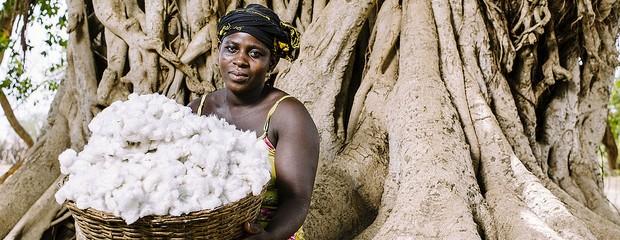Getting Somalia Wrong: faith, war and hope in a shattered state – By Magnus Taylor

 The next book in the African Arguments series is Getting Somalia Wrong by BBC journalist Mary Harper. It is a complex account of a country too often stereotyped by one or two of its most notorious characteristics – recently these being the Islamist insurgency of Al-Shabaab, piracy off its Indian Ocean coast and terrible famine.
The next book in the African Arguments series is Getting Somalia Wrong by BBC journalist Mary Harper. It is a complex account of a country too often stereotyped by one or two of its most notorious characteristics – recently these being the Islamist insurgency of Al-Shabaab, piracy off its Indian Ocean coast and terrible famine.
Harper’s book has grown out of 20 years working on and in the country, and functions not as a conventional history of Somalia, but rather as a discussion of several key themes central to its present state. Pleasantly surprising was the thread of black humour that runs throughout, created by the description of several historical events that exemplify an admirable, and slightly crazed, Somali independence of spirit. First is the story of the “˜Mad Mullah’ – warrior poet Seyyid Mohamed Abdulle Hassan – who fought the British to a standstill in the early 20th century and described himself as “˜a stubborn he-camel’ from whom the British would get “˜war and nothing else.’ When his troops killed a British commander sent to pursue him, he penned “˜a brutal celebratory poem’ detailing how his dead body would be “˜left to the carrion eaters.’
In a neat historical parallel, eighty years later, warlord General Mohamed Farah Aideed had a $20,000 bounty placed on his head by Admiral Jonathan Howe – commander of the US “˜humanitarian’ mission Restore Hope. Aideed responded by promising to pay $20,000 to anyone who brought him the actual head of Admiral Howe. Whilst such violent reactions might seem anathema to us, they underscore a fundamental self-confidence that Harper clearly respects. Long-time scholar of Somalia, Ioan Lewis, puts it another way – Somalis have “˜an open contempt for other people.’
What Harper is trying to do is to resurrect a basic level of respect in discussions about Somalia. From its portrayal as a lawless place, riven with fundamentalist Islam, and latterly suffering the effects of a terrible famine, she argues that these aren’t the only things that happen in the country. Her real interest, I think, was in profiling modern-day Somalia where ‘more than two decades of conflict and crisis have forced Somalis to invent alternative political and economic systems.’ These innovations in the economy, the livestock trade, money transfers and telecommunications reveal something that will be new to many readers – successful Somalis making money. She also clearly admires the political developments in Somaliland – the northern territory that seceded from the Somalia after the collapse of the country’s central government in 1991. Still unrecognised by the international community, Somaliland has slowly developed its own hybrid democratic system with some traditional structures still in place, and is generally peaceful and heading in the right direction.
In conversation Harper refers to Somalia as being “like a complex mathematical equation” – the moving parts being the country’s bewildering clan system, and although some Somalis reportedly deny its modern-day importance, Harper “would take any Somali on who said the clan system was not relevant.” Whilst clans were suppressed under Siad Barre’s pseudo-socialist regime, and their resurgence in the 1990s is sometimes seen as the cause of the civil war, they remain the shifting bedrock upon which Somali society is built. I ask what she thinks defeat of the Islamist group Al-Shabaab would do for the country. The answer is perhaps surprising – far from ending the violence, Harper predicts that Somalia might, at least initially, take a step backwards, as the more ingrained divisions would resurface and regional clan-based groups take up arms again against each other. Whilst she deals harshly with the violent and reactionary Islam of Al-Shabaab, she states that their presence has softened the influence of the clan in Somalia. Whilst this has been achieved “largely through fear,” she also argues that there might be some things to learn from this about the way Somali society works.
This desire to develop a new “˜take’ on almost all facets of Somalia’s poorly reported public profile is nowhere more in evidence than in her chapter on the pirates. Harper is blunt in her statements to me that Somali pirates are “common criminals”, and does not accept the fashionable counter-narrative that they are coastguards or fishermen driven to piracy through foreign exploitation of their fishing grounds. She seeks to write about Somalia’s most notorious product “on their own terms”, and includes several interviews with people who have been pirates. Piracy is clearly a profitable business, and is a product of both the Somali entrepreneurial élan, and the lack of economic opportunities on land due to chronic political instability, banal as this explanation may sound.
Harper evidently has a love and fascination for Somali people. She tells me that “Somalis give me massive freedom as both a journalist and human being.” Whilst she inhabits a position somewhat elevated from the average Somali women, whose opportunities are limited in what is a conservative, male-dominated society; she doesn’t recognise the real bitterness against this culture characterised in the writings of Ayan Hirsi Ali, and a string of western commentators on the “˜Islamic world’.
In this, and many other topics, Harper isn’t necessarily positive about the country’s future, and is wary of making fashionable predictions, she is however keen to show that not everything about the place is broken.
Magnus Taylor is Managing Editor, African Argumeents Online.
Getting Somalia Wrong is being launched by the Royal African Society at SOAS on the evening of 7th February – click here for more information.







[…] Magnus Taylor is Managing Editor, African Argumeents Online. […]
Somalia is a nation state which has been poorly served by the elites whether in governance, education, commercial development and [even] in religion where the disparity between the fortunate [very] few and the rest is both grave and distressing, creating and engendering extreme frission of volatility generating much strife and public policy friction.
Civil Society must be strengthened and be allowed to engage fully in public policy discourse, which may create political public policy tension. However this form of tension can be considered as a good in the long-term development of Somalia. International/National Aid/Assistance ought to concentrate on the long-term generational educational approach in strengthening the capacity of [ideally] all Somalian Citizens to be both participatory and critical in a positive sense as to how Governance [civil and social] is operating on their behalf and to understand that much time will be required in re-building the institutional infrastructure of a very bereft Somalian social public policy civil ethos.
Time and resources will and are going to be scarce and tough elemental decisions must be agreed as to priorities on where to go—’whither Somalia’. Trust must be developed between the elites and the rest of the Somalian populace who have very little in the way of material goods and needs. Future hope for the vast majority of Somalians is diminishing rapidly. Somalian civil cohesion if left uncontained could have severe and violent social/political repercussions which like the famine set Somalia back [again] in terms of potential economic and social viability.
Assistance to be considered prescriptively effective must concentrate initially in strengthening civil society [at large] providing educational assistance to the political elite in attempting to instill within both groups [civil and political] that public/political policy is a social instrument designed to serve and assist those most fragile and most vulnerable to want which does require critical attention to food delivery and health care response.
Another grave issue for Somalia is what to do concerning the plethora of NGO’s in the region. The vast proportion of these NGO’s are creating more problems/issues, as the maxim ‘doing least harm’ is being severely compromised and the Somalian community is suffering as a result of these NGO’s competing for and over providing [scare] resources in their ill founded attempts in social grafting whether very short term or not!
Monte McMurchy